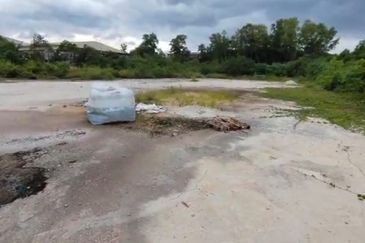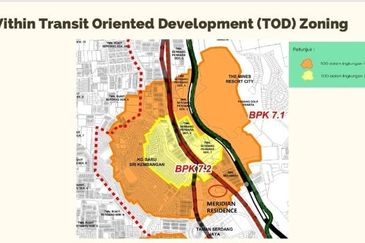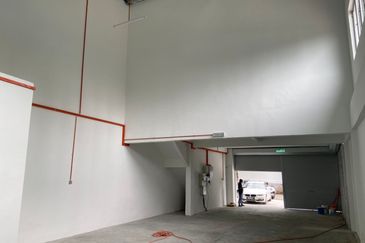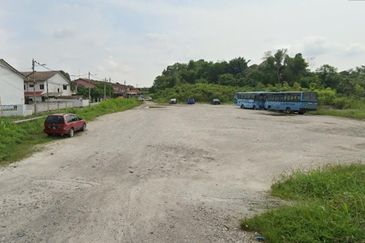 The proposed implementation of eLelong by the Chief Registrar’s Office of the Federal Court of Malaysia (CRO) is aimed at mitigating issues surrounding the property auction process, particularly when it comes to syndicates. But it may not address the existing loopholes in the court system when it comes to buying auctioned properties, according to Stephen Soon, managing director of MNP Auctioneers (Central) Co Ltd and chairman of the Penang Auctioneers Association.
The proposed implementation of eLelong by the Chief Registrar’s Office of the Federal Court of Malaysia (CRO) is aimed at mitigating issues surrounding the property auction process, particularly when it comes to syndicates. But it may not address the existing loopholes in the court system when it comes to buying auctioned properties, according to Stephen Soon, managing director of MNP Auctioneers (Central) Co Ltd and chairman of the Penang Auctioneers Association.
“The platform may affect both the banks and owners of the auctioned properties who have defaulted on their loans. In live foreclosure auctions, the court officer, plaintiff or plaintiff’s solicitor and bidders are present as witnesses, hence making it an open and transparent process. This may become defunct if the auction is only done electronically. This could negate the key factors in the judicial auction process, which is to be open, transparent, have integrity and be competent and accountable,” he says in an email response to Personal Wealth.
The eLelong platform enables all public auction transactions to be conducted online and mimics the same work process as traditional auctions with a few modifications. The process starts with the filing of an application with the High Court, followed by the registration of bidders once the property is on eLelong.
When the successful bidder has remitted full payment for the property, the court officer will sign the certificate of sale and send it with the title deed to the successful bidder. The CRO expects to launch this platform in December.
There could be other problems arising from the transaction process if it is only done through eLelong, says Soon. “Compared with other subsale auctions, foreclosure auctions only require 7 to 14 days’ notice.

Is there sufficient time for bidders to conduct all the necessary research [on the property] and register as bidders [on eLelong]?
“What if an internet glitch causes the platform to hang while a bidder is bidding for a property online?
He might find out later that the glitch caused him to lose out on the property. And if there is monetary shortfall because of the glitch, who will be blamed?
The CRO? The bidder?
“Another concern is that what will happen when the eLelong system is down? Will there be a back-upsystem? And assuming that the auction is cancelled and rescheduled, the plaintiffs (banks) may be hit as this adds to their holding cost.”
He says the eLelong system should not be implemented yet as public awareness of the auction process is still low. “Many are comfortable selling their properties through real estate agents but not auctioneers. The auction market in Malaysia is not as mature as those in developed countries such as Australia. Hence, more time is needed to educate
Malaysians. Implementing eLelong straightaway is like making people run before they know how to walk.”
Licensed auctioneers are appointed by the court to process auctioned properties, from A to Z. So, they are the experts on the subject matter as well as the best salespeople and advisers, says Soon. They help potential bidders navigate the auction process.
“However, such a friendly medium will not exist if eLelong is implemented.
Currently, there are about 1,600 licensed auctioneers in Malaysia and their livelihood will be affected,” he adds.
Possible solutions
Soon has some suggestions on what can be done to rectify the issues on the platform as well as in the existing auction process. “Incorporating online bidding as a supporting tool for live auctions provides the best solution. [It is democratic] for all bidders because a good system provides options, not limitations,” he says.
“Another suggestion would be e-live bidding — a bidding platform, such as best2bid.com, that combines electronic and traditional auctions. Auctioneers will manage and administer the whole auction process as well as accept bidders online. E-live bidding was implemented and endorsed by Bank Negara Malaysia for the auctioning of Malaysian banknotes.”
Soon says there are solutions to the problems involving syndicates. “We [MNP Auctioneers] have for years proposed to the courts that the current auction flow be enhanced and streamlined.
One of our suggestions is to shorten the waiting time before commencing auctions. The current waiting time is normally half a day to complete the auctioning of properties. This has allowed the syndicates to use the period of time to negotiate with genuine bidders [and buy them out of the bidding].
“[Another suggestion] is to increase the level of discretion of court officers handling the foreclosure auctions. This is to protect bidder registration details and to reduce unnecessary contact. They should provide a waiting room for the registered or genuine bidders with security surveillance [to deter syndicates from negotiating with them]. If any suspicious or unnatural patterns of behaviour are found during bidding, they should withdraw the property and blacklist certain bidders.
“We would also like to suggest that the High Court authenticate the deposit required for registering bidding interest by way of bank draft or banker’s cheque, rather than leave the authentication to a court officer, such as a bailiff.”
This article first appeared in the Personal Wealth, a pullout of The Edge Malaysia, on Oct 31, 2016. Subscribe here for your personal copy.
TOP PICKS BY EDGEPROP

Park Place @ ParkCity
Desa Parkcity, Kuala Lumpur

Kawasan Perindustrian Nilai 3
Nilai, Negeri Sembilan

Kawasan Perindustrian Nilai 3
Nilai, Negeri Sembilan

Semenyih Integrated Industrial Park
Semenyih, Selangor

Taman Perindustrian Kip
Kuala Lumpur, Kuala Lumpur

Kampung Baru Seri Kembangan
Seri Kembangan, Selangor

Bandar Mahkota Banting (Brooklands)
Banting, Selangor

Bandar Mahkota Banting (Brooklands)
Banting, Selangor

Grandezza @ Eco Sanctuary
Telok Panglima Garang, Selangor
















